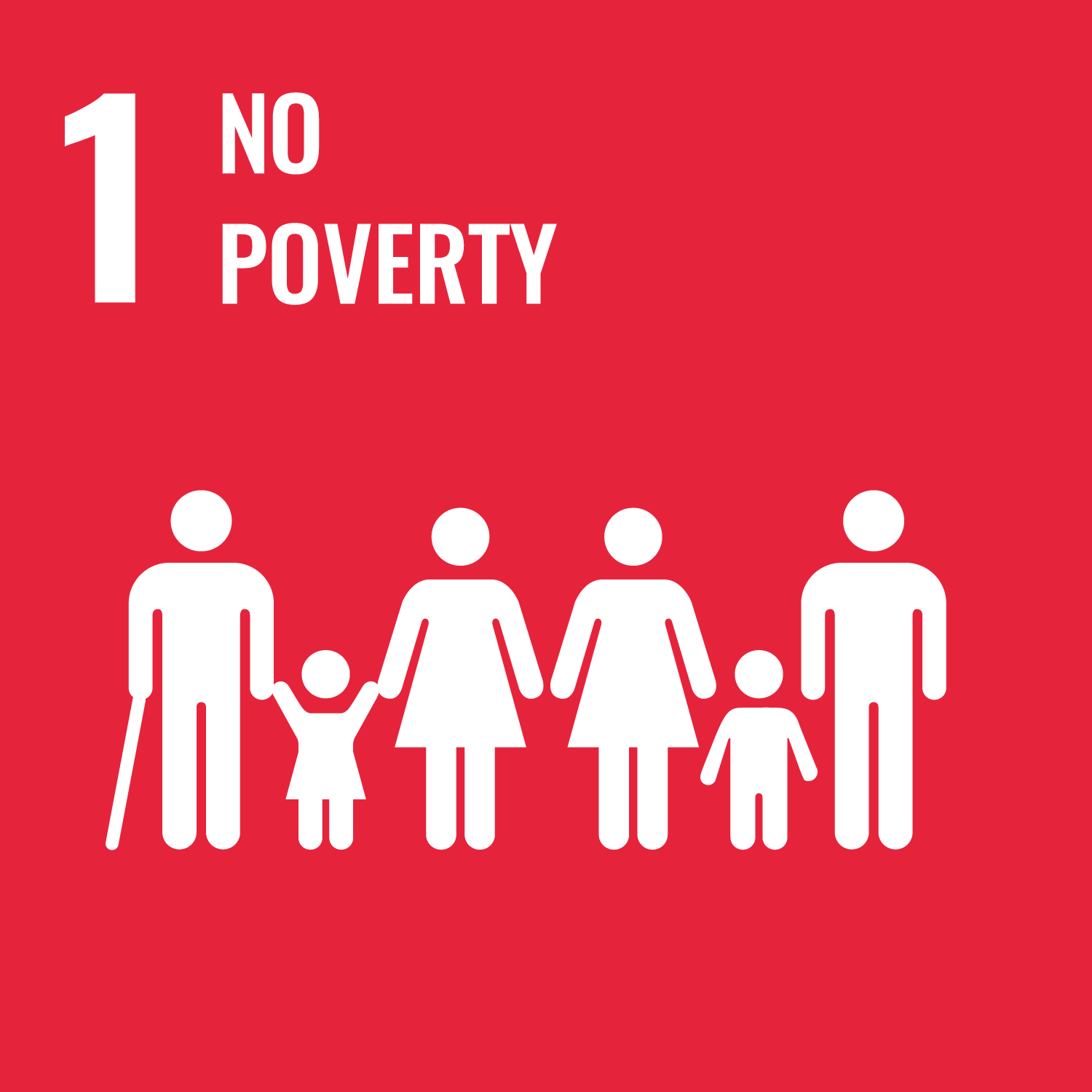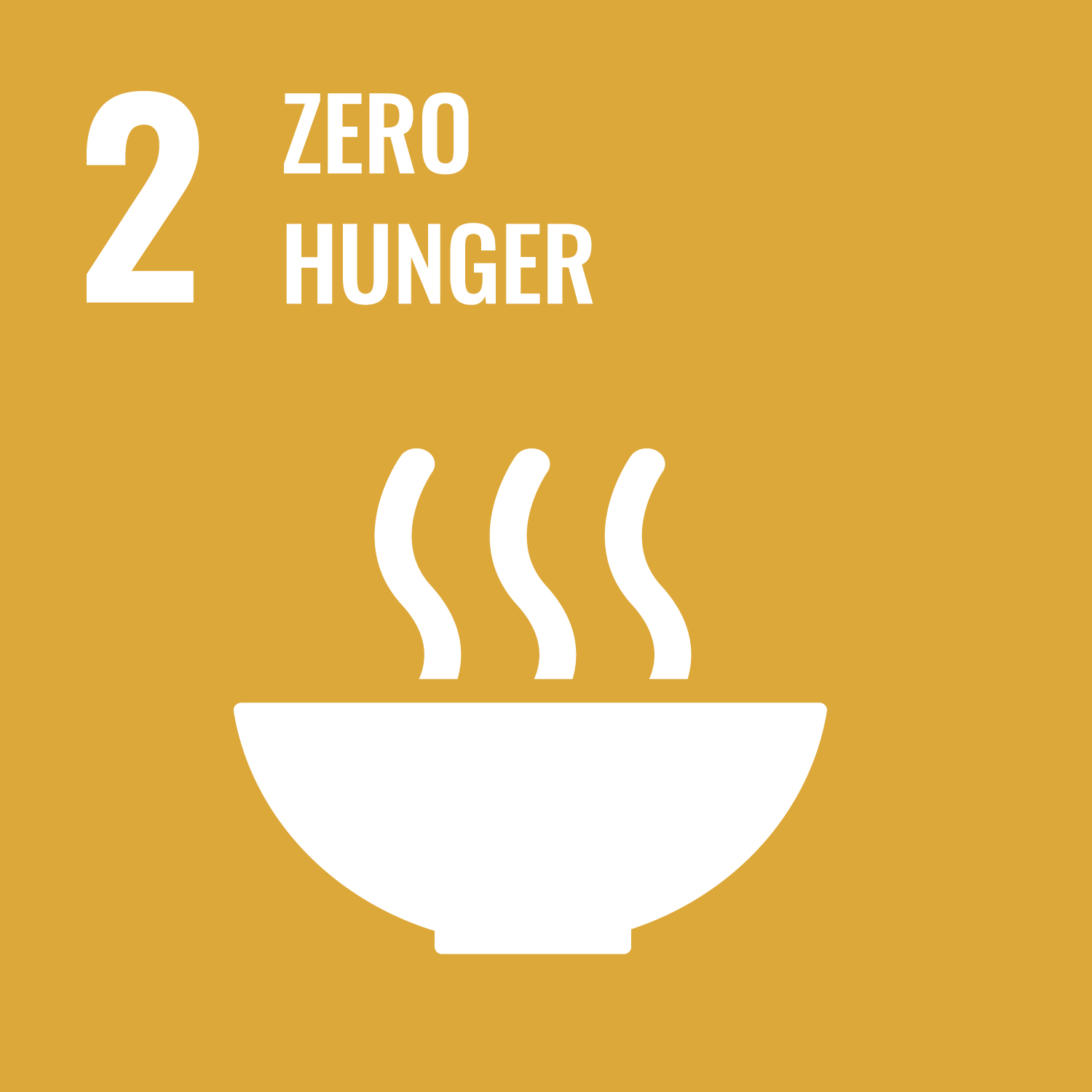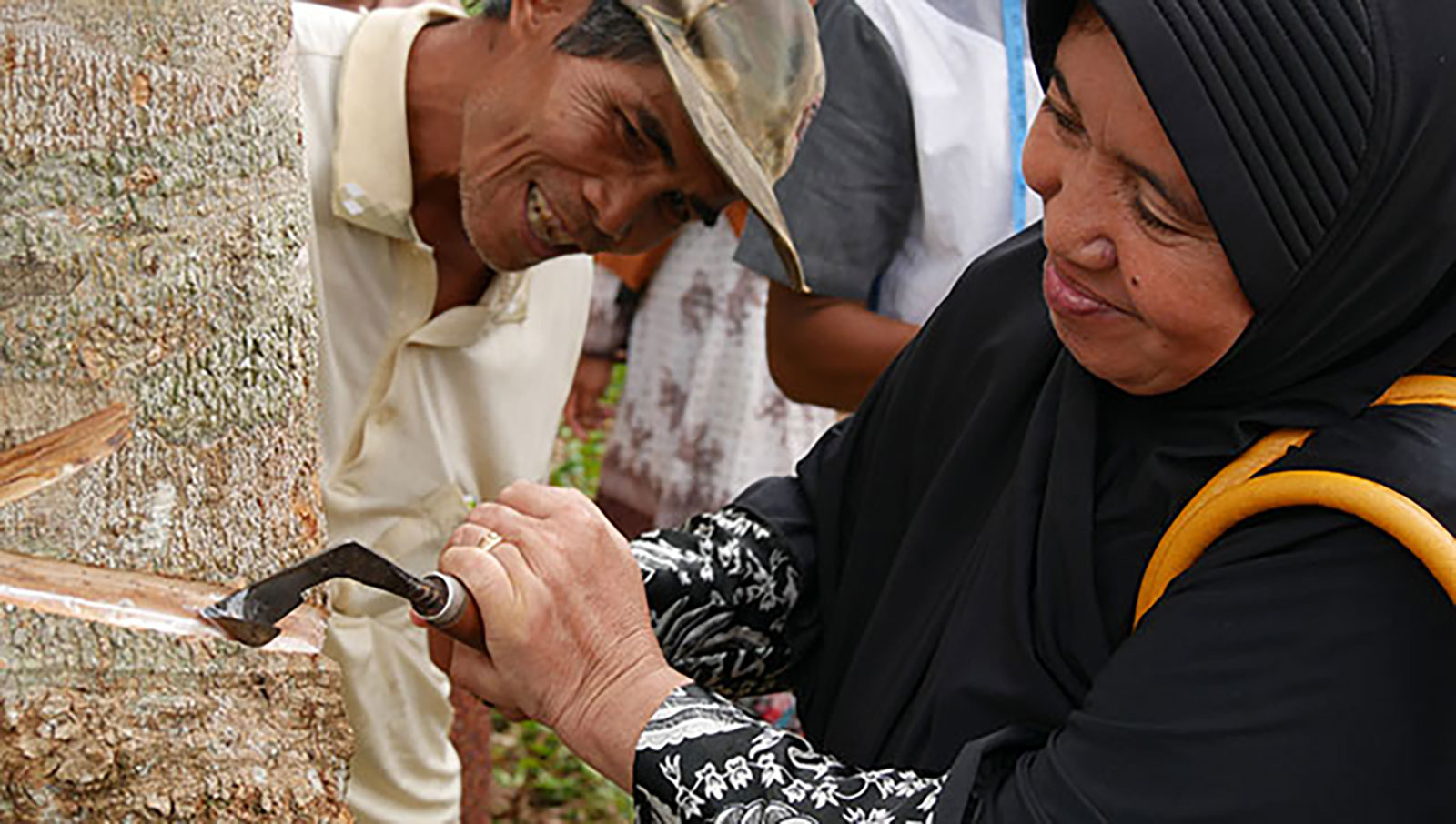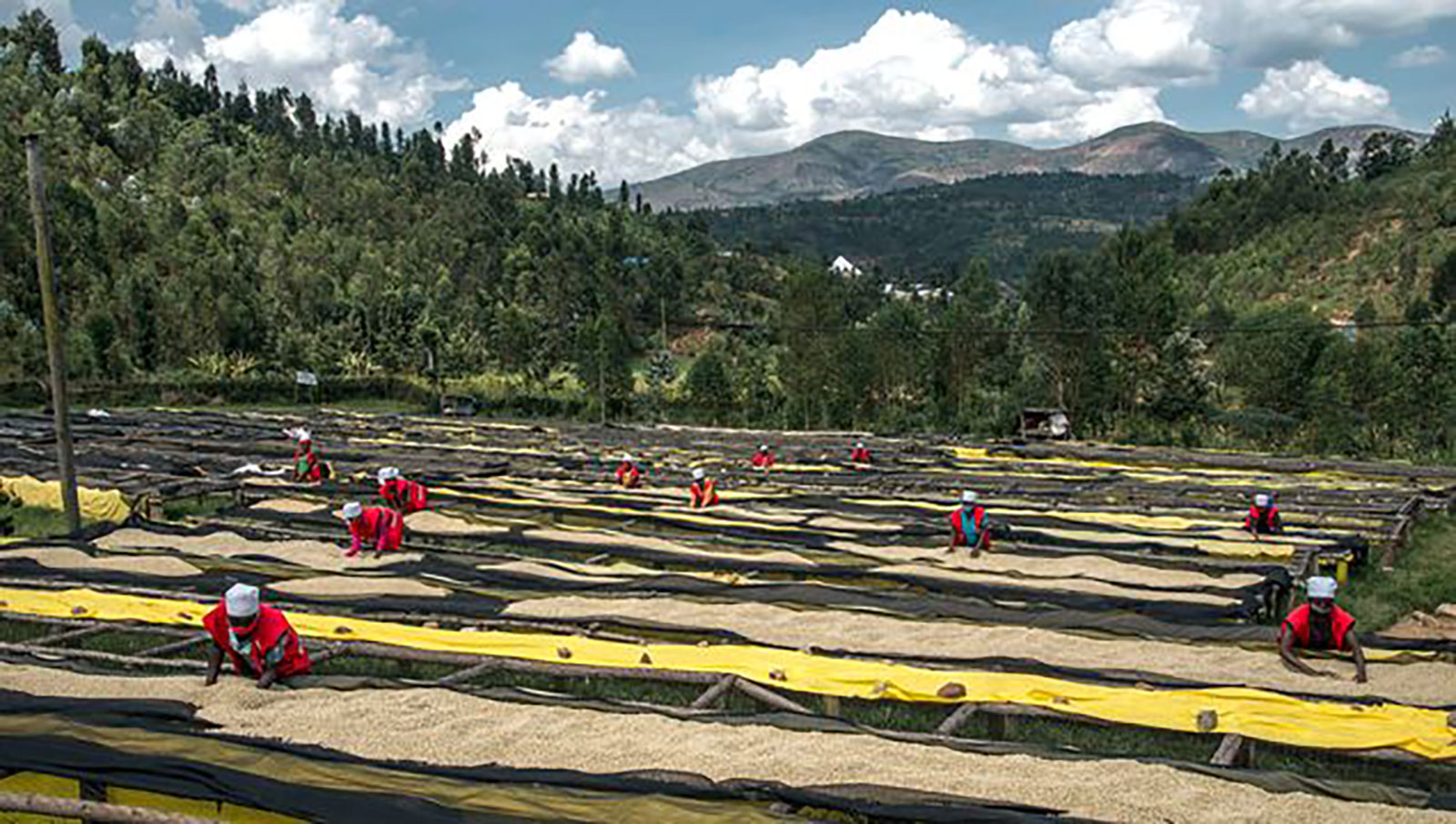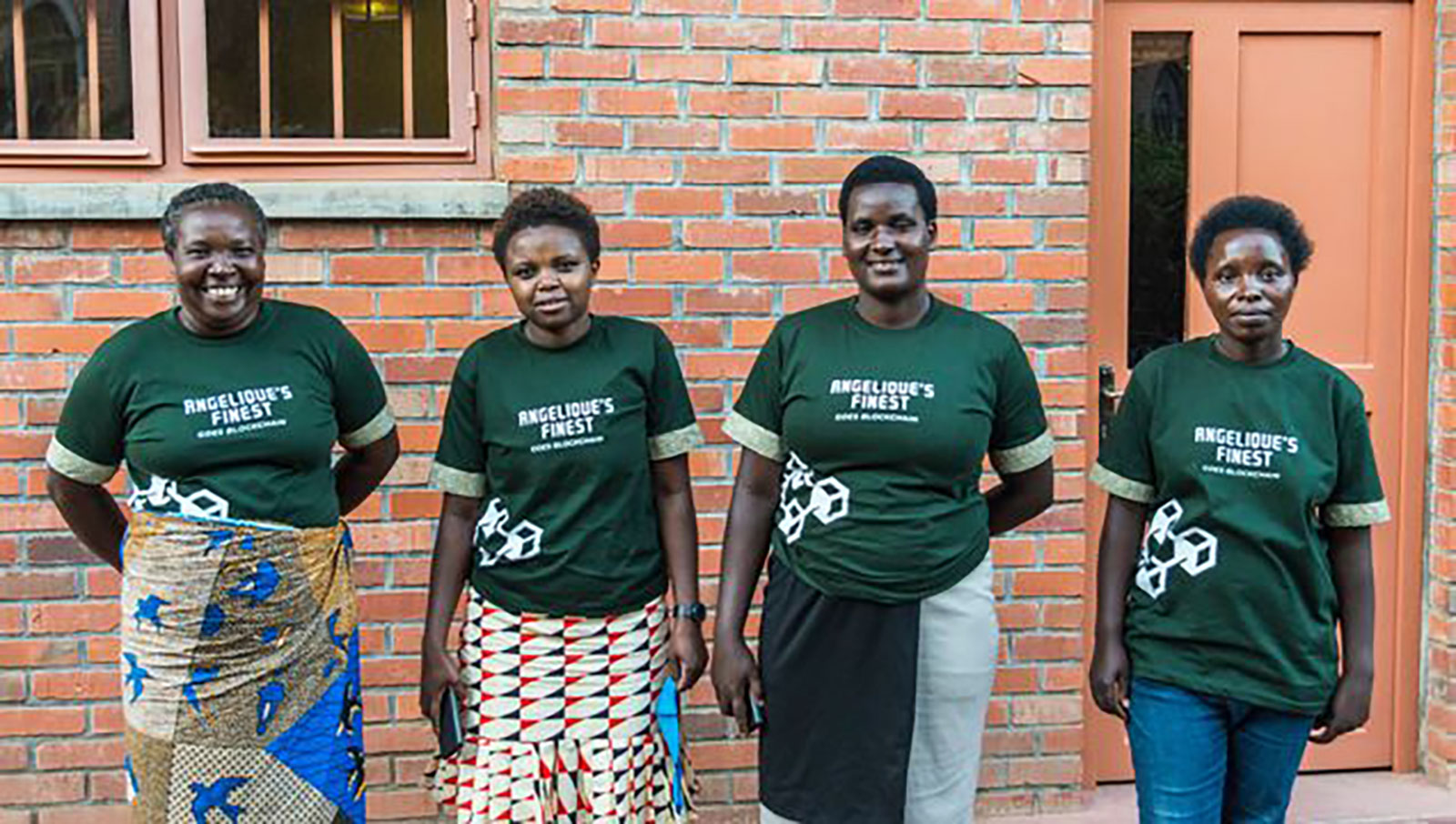Programme Sustainability and Standards in global Agriculture Value Chains

OBJECTIVES
- Building a cross-commodity stakeholder network on sustainable agricultural supply-chains
- Offer expertise and practical tools on topics connected to sustainable agricultural supply-chains e.g. living-income, deforestation free supply-chains, digitalisation or due-diligence processes in the context of regulative policies in Germany and the European Union
- Serve as a service platform to facilitate cooperation with private-sector and NGOs
- Support companies to make their agricultural supply-chains more sustainable and contribute to the Sustainable Development Goals
DESCRIPTION
The “Initiative for Sustainable Agricultural Supply Chains” (INA) advises the German Federal Ministry for Economic Development and Cooperation (BMZ) on sustainability issues along global agricultural supply chains such as coffee, cocoa, palm oil, rubber, bananas and cotton. The successful implementation of sustainable agricultural supply chains requires a coordinated strategic approach by the relevant actors from business, civil society and government.
Some cross-sectoral challenges, such as deforestation, child labour or living income, must be addressed through holistic approaches, otherwise these challenges could shift from one sector to another. Moreover, many stakeholders (e.g. retailers, diversified companies and NGOs) are involved in several initiatives, which is costly and time-consuming. In order to enable coordinated action and mutual learning between the various actors and sectors, BMZ has commissioned GIZ to initiate the cross-sectoral and cross-commodity “Initiative for Sustainable Agricultural Supply Chains” (INA).
APPROACH/FIELD OF INTERVENTION
- With a holistic, multi-level approach in mind, the project works together with the members of the ACCMSME, as the lead Sectoral Body. The ACCMSME members are expected to connect stakeholders from the public and private sector in the ASEAN Member States (AMS).
- The project aims to strengthen the ASEAN SMEs Services Center for improving cross-border business development and National SMEs Information Centre within the framework of the ASEAN Strategic Action Plan for SMEs Development 2025, by implementing the following thematic fields:
- Improving the ASEAN SMEs Service Centre;
- Strengthening national SMEs information centres, and
- Promoting national SMEs services for internationalization.
TARGETED BENEFICIARIES
Smallholders, workers in agricultural value-chains, consumers, private-sector, civil-society
HIGHLIGHT ACTIVITIES
The INA offers a wide expertise on a variety of topics ranging from deforestation-free supply-chains, living income and wages to digitalisation. The Initiative also works in a broad range of sectors e.g. coffee, cocoa, palm oil or banana. The following points highlight some of INA’s main activities:
- Creating a community of about 90 stakeholders from private-sector, politics and civil society through:
- Regular Workshops and networking events
- Monthly Newsletters and special issues on focus topics
- A Website: nachhaltige-agrarlieferketten.org/en with information on upcoming events and news with
- Initiating projects that focus on creating sustainable sourcing regions in:
- Ethiopia (coffee, spices and beeswax),
- Rwanda (coffee),
- Columbia (Coffee, Cocoa, Palm Oil),
- Ghana (Cashew and Cocoa)
- India (Tea and spices)
- Indonesia (rubber)
- Close collaboration with sector-based multi-stakeholder-partnerships
- German Initiative on Sustainable Cocoa
- Forum for Sustainable Palm Oil
- International Coffee Organisation
- Action Alliance for Sustainable Bananas
- Partnership for Sustainable Orange Juice
- Developing tools for practitioners among others:
- INA-Trace – Open-access traceability solution based on blockchain technology
- Gap Estimator- Tool to calculate the living income gap for different regions
- Pricing Tool – price calculation tool to reach a living income for a variety of countries and regions
- Living-income Toolkit – A guideline for companies on the implementation of Living Income
- Raising awareness among consumers on sustainable value-chains and consumption through:
- Various social-media channels and cooperation with content-creators
- A consumer-focused website: ichwillair.de
- Coordination of a civil society working group with joint campaigns
- A Podcast: “From field to shelf” (mostly German)
SUCCESS STORIES
Traceability in for Indonesian Rubber with Continental
For the first time, the German Federal Ministry for Economic Cooperation and Development (BMZ) and the technology company Continental have made a rubber supply chain fully traceable electronically – from cultivation in Indonesia to further processing and tire production.
The Kapuas Hulu district in the Indonesian region West-Kalimantan is characterized by two national parks with extensive natural forests, designated as a biosphere reserve by the United Nations Educational, Scientific and Cultural Organization (UNESCO). The project partners document all steps in the supply chain with a digital traceability system. The 450 smallholders involved so far achieve ten to 15 percent higher sales prices than usual for the higher quality natural rubber they produce.
This is because the smallholders are trained in sustainable cultivation practices and better techniques. They learn how to cut the trees to get as much rubber as possible. They also now use different collection containers for the rubber, so that less dirt gets into the rubber, making production more efficient. As a result of the on-site training, they significantly increase their yields per unit area and can use the trees productively for longer.
Since 2020, INA in Rwanda has been digitalising the supply chain of a speciality coffee that is cultivated solely by Rwandan women. These women have been producing their coffee for the German market for a long time, and yet consumers in Germany know hardly anything about the origins of the hot drink they enjoy every day. The global supply chains are usually not transparent, and the end product on the supermarket shelves tells consumers very little about the social, economic and environmental conditions in the country where the coffee is grown. INA is aiming to change this with the aid of blockchain technology. For the implementation on the ground, INA partnered with the International Women’s Coffee Alliance, Rwanda Chapter.
To ensure transparency along the entire supply chain, the INA project has developed a transferable, open source and blockchain-based traceability solution called INATrace, that documents the path taken by the coffee cherry from cultivation through to the finished product. For this purpose, all the details of the supply chain – such as the prices paid and the stakeholders involved – are stored digitally.
“INATrace is an incredible platform for coffee producers to show our meticulous product processing transparently and share our goals with the consumers. In addition, the system will be a trustworthy channel for producers to receive direct feedback from the consumers. This will guide us to grow professionally so that our products can compete on the international market. To me, the system is a sunshine for coffee lovers.” – Angelique Karekezi, the managing director of RWASHOSCCO
COUNTRY
Global
DURATION
2020 - 2024
Commission Agency
BMZ
SDG
